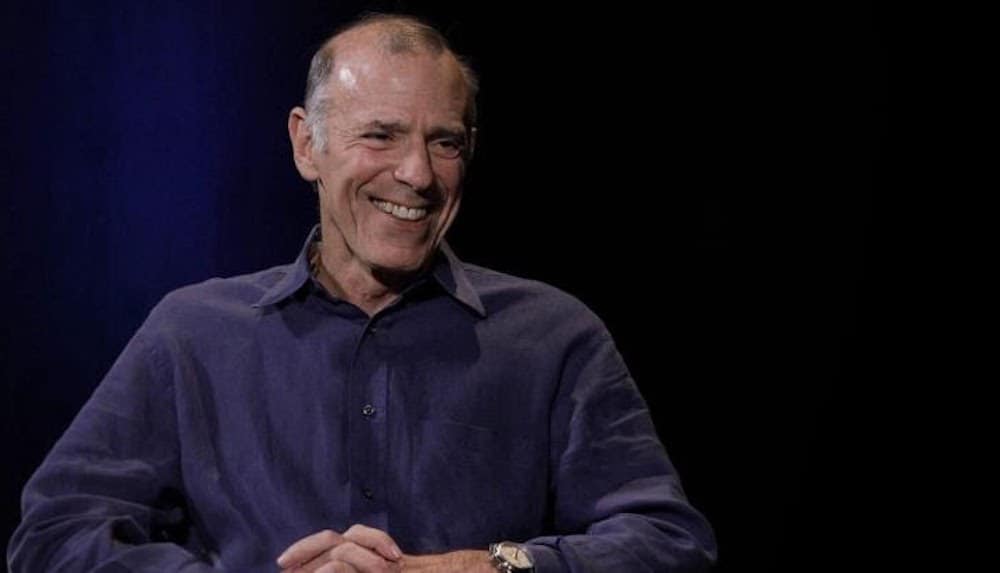Podcast: Tony Wagner on Learning By Heart

Tony Wagner (@drtonywagner) is a former high school teacher, principal, teacher educator, and school coach. For three decades he’s been an advocate for deeper learning for all students. His books Change Leadership, Global Achievement Gap, Creating Innovators, and Most Likely to Succeed sounded the alarm bell that the new economy requires new learning.
Tony’s new book is a memoir called Learning By Heart. It recalls his struggles with traditional education. He hated school. He was kicked out of middle school. He dropped out of boarding school. He dropped out of two colleges.
It wasn’t until Friends World Institute (now LIU Global) that things clicked for Wagner. The Quaker school, influenced by Dewey, featured hands-on projects and frequent study trips. The goal was to educate agents of social change.
Wagner lived and studied in Mexico for a year. He kept a journal, talked frequently with his advisor about what he was learning, and earned credit based on written reflections.
Tony enjoyed success as an English teacher. A less than successful stint as a school head caused a period of reflection for Wagner.
After earning a doctoral degree at Harvard, Tony trained principals including those from Federal Way Washington where Tom was superintendent. Tony became a coach to the school district and visited at least once a semester to visit schools and coach the leadership team on the path forward.
Wagner was influential in helping to shape the early Gates Foundation agenda and facilitated introductions to sector leaders including Ted Sizer, Deborah Meier, and Larry Rosenstock.
Some of Tony’s high impact books include:
How Schools Change (second edition, 2002) recaps Tony’s dissertation at Harvard, a qualitative review of school change efforts in three communities. He makes the case that ed leaders need a well-articulated reason for the change. It includes a great forward by Ted Sizer.
Making the Grade, 2002, made the case that schools are obsolete and must be reinvented. It countered the failing and reforming, teacher blaming narrative with a new message: “No shame, no blame, no excuses.”
Change Leadership (2006) reframes the problem and makes the case for new skills and a new vision of success. It offers a change methodology and case studies.
The Global Achievement Gap (2010) situates our school problems in the larger context of the demands of the global knowledge economy. Interviewing top businesses and civic leaders, Wagner spotted 7 survival skills and noted that even schools considered best, we don’t teach or test the skills that matter most. The book explores new models of schools that are inspiring students to solve tough problems and communicate at high levels.
Creating Innovators (2012) argues that play, passion, and purpose are the forces that drive young innovators. Wagner elaborates on the 7 survival skills-core competencies that every student should master before the end of high school:
- Critical thinking and problem-solving (the ability to ask the right questions)
- Collaboration across networks and leading by influence
- Agility and adaptability
- Initiative and entrepreneurialism
- Accessing and analyzing information
- Effective written and oral communication
- Curiosity and imagination
Most Likely to Succeed: Preparing Our Kids for the Innovation Era (2015) was written with Ted Dintersmith to accompany a movie of the same name. It presents a new vision of American education, one that puts wonder, creativity, and initiative at the heart of the learning process and prepares students for today’s economy.
An Unconventional Education
Viking Press recently released Wagner’s memoir, Learning By Heart where he recounts his unconventional education.
Wagner has been collecting his writing since the age of 14 so he was able to review decades of journals, articles, and even a couple of unpublished manuscripts. He found it challenging to revisit traumatic experiences.
As a teacher of English and author, Tony was a writer skilled but found that he didn’t know how to write a memoir. He found a coach and started weekly Skype meetings. He found that a good memoir is “less about me and, like a novel, is more about influences.”
The core message of the memoir is the importance of learning through trial and error. But in school, mistakes are considered failure. “School often destroys curiosity because kids don’t get a chance to ask their own questions,” added Wagner.
Tony illustrates how leveraging student interests and strengths is critical to real growth. He laments that so many students never experience that.
While Learning by Heart was written pre-pandemic, Wagner thinks the lessons are highly relevant to the current opportunity to rethink education, to ask “If we started from scratch to create something that enabled the full development of human capability, what would that look like?”
We think you’ll enjoy Learning by Heart and find it useful in reimagining education for the future. As a bonus, Tony narrated the audio. Take it for a drive.
Key Takeaways:
[1:35] Tom and Tony reflect on some of their history working together.
[6:20] Tony speaks about his past experience with traditional education.
[7:35] Tony speaks about the college that enabled him to become a teacher.
[9:38] Educating for social change/social good was very vibrant in the ’60s. Does Tony find that there has been a resurgence of that ethos today?
[10:39] Tony reflects on his time leading schools and some of the biggest takeaways.
[15:47] Adaptive challenges: why they’re important for students, teachers, and leaders.
[16:52] Fast forward to 1999; Tom and Tony reflect on some of their education adventures and what they learned.
[19:25] Tony provides his thoughts on the No Child Left Behind (NCLB) act.
[21:31] Tony speaks about why his book, How Schools Change, was important to him.
[22:29] Jessica shares an important resource with listeners: the Getting Through microsite.
[23:09] Tony explains the main message behind his 2003 book, Making the Grade.
[24:18] Tony highlights some of the main lessons from his 2009 book, Change Leadership.
[26:08] Tony explains what his next book, The Global Achievement Gap, was about.
[29:35] Tony followed up The Global Achievement Gap with Creating Innovators. Who would Tony say this book was written for? And what did it cover?
[32:10] Tony speaks about his 2015 book, Most Likely to Succeed, that he co-wrote with Ted Dintersmith.
[34:47] Tony speaks about his most recent book, a memoir called Learning by Heart, and whether or not it was harder or easier to write, compared to his previous books. He also highlights some of the biggest takeaways from it.
[42:10] As Tony thinks about the teachers and leaders listening to this podcast, what would he want to say to them, in terms of post-pandemic learning?
[44:15] Where to find Tony’s newest book, Learning by Heart, and Tony online
[45:05] Tom thanks Tony for joining the Getting Smart podcast!
Mentioned in This Episode:
GettingSmart.com/GettingThrough
Tony Wagner
Tony Wagner’s Books
Learning by Heart: An Unconventional Education, by Tony Wagner
LIU Global College (originally known as Friends World College)
Leadership Without Easy Answers, by Ronald A. Heifetz
No Child Left Behind (NCLB)
Most Likely to Succeed Film
Tom Vander Ark on Forbes
Northshore School District
For more see:
- Podcast: Virginia Superintendent James Lane on Unleashing Innovation
- How to Prepare Learners for an Uncertain Future: A Conversation with Dr. Tony Wagner
- Book Review: Creating Innovators
Stay in-the-know with innovations in learning by signing up for the weekly Smart Update.







0 Comments
Leave a Comment
Your email address will not be published. All fields are required.